South Korea prosecutors name president Yoon Suk Yeol as suspect in treason investigation
Yoon’s defence minister, who is accused of suggesting the idea of imposing martial law to him, has been arrested
Your support helps us to tell the story
From reproductive rights to climate change to Big Tech, The Independent is on the ground when the story is developing. Whether it's investigating the financials of Elon Musk's pro-Trump PAC or producing our latest documentary, 'The A Word', which shines a light on the American women fighting for reproductive rights, we know how important it is to parse out the facts from the messaging.
At such a critical moment in US history, we need reporters on the ground. Your donation allows us to keep sending journalists to speak to both sides of the story.
The Independent is trusted by Americans across the entire political spectrum. And unlike many other quality news outlets, we choose not to lock Americans out of our reporting and analysis with paywalls. We believe quality journalism should be available to everyone, paid for by those who can afford it.
Your support makes all the difference.The leadership crisis in South Korea deepened further on Sunday after prosecutors named president Yoon Suk Yeol as the subject of a criminal investigation over his failed attempt to impose martial law, and as his former defence minister was arrested.
Mr Yoon survived an impeachment vote on Saturday after members of his party boycotted the move. But the leader of his ruling People Power Party (PPP) Han Dong Hoon said in a joint public address with prime minister Han Duck Soo that the president would be “excluded from his duties”.
“Through Yoon’s early and orderly exit from office, we will minimise confusion, stabilise the political situation and properly establish free democracy,” Han Dong Hoon said in the address.
“The president will effectively be excluded from his duties, including foreign policy and other state affairs, and the prime minister will consult with the party to ensure that the administration of state affairs proceeds without any disruptions.”
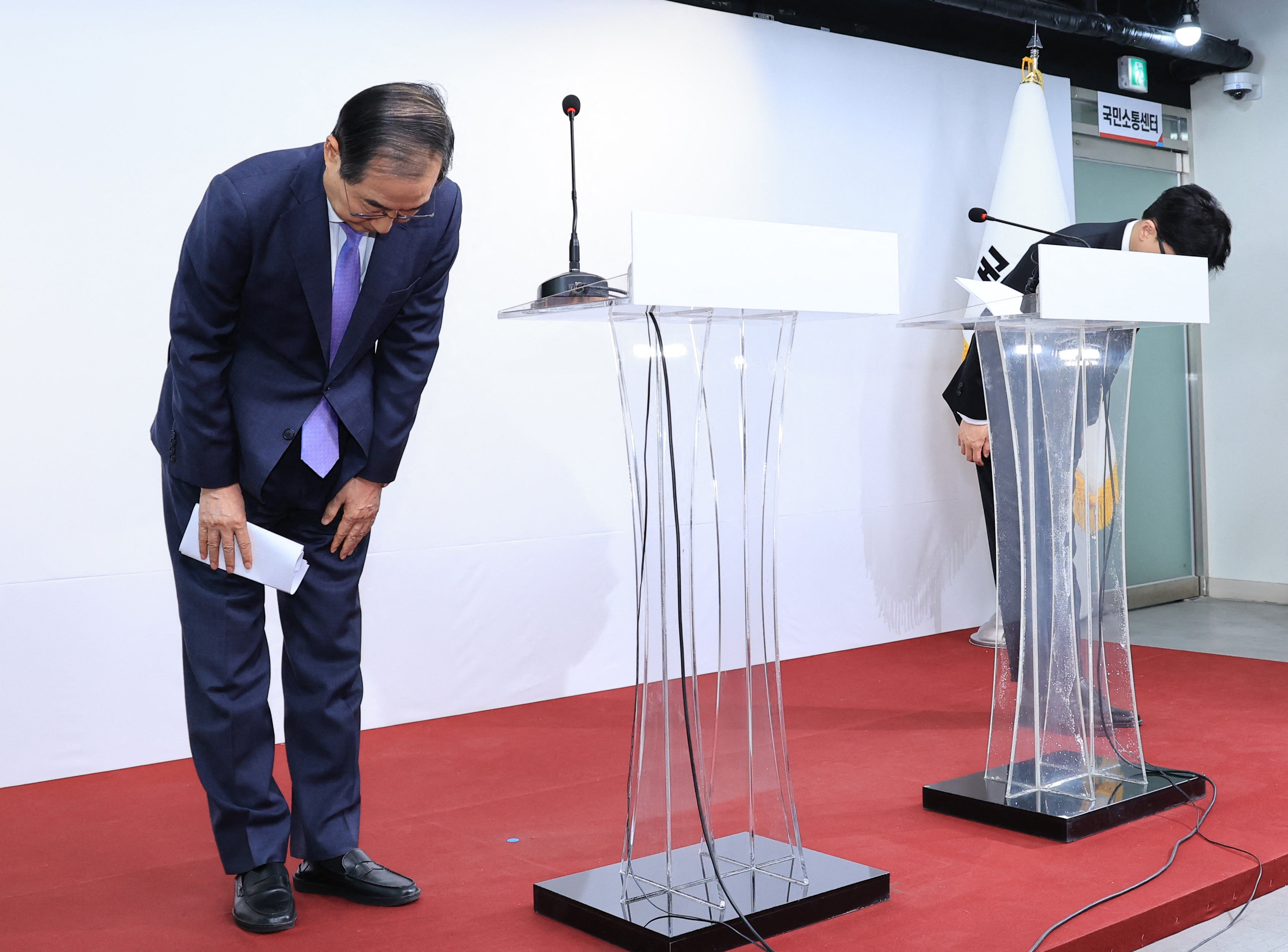
However, he did not provide any clarity on when and if Mr Yoon would resign, except to say it will be “swiftly announced after discussions within the [ruling] party”.
The announcement was immediately met with condemnation from opposition lawmakers who said it was another unconstitutional power grab to delegate authority without resignation or impeachment, and confirmed they would call for an impeachment vote again.
“The two Hans’ announcement to share power while having Yoon step aside is another coup that violates the constitutional order. It’s absolutely mind blowing how people can have such an outrageous imagination that ignores national sovereignty,” said the main opposition Democratic Party’s (DP) leader Lee Jae Myung.
Mr Yoon, he said, “must resign immediately or be impeached immediately. That is the only way to resolve this crisis. We will push for the impeachment vote again on 14 December.”
National Assembly speaker Woo Won Shik said the prime minister and the ruling party leader were violating the constitution by involving themselves in handling state affairs.
“The prime minister and the ruling party’s announcement that they will jointly exercise the powers of the president, which no one has given them, is clearly unconstitutional. It is extreme arrogance, and disrespects the nation’s sovereignty and the constitution,” he said.
Civilian protests showed no signs of letting up, as thousands thronged outside the parliament calling for Mr Yoon’s impeachment and arrest, as well as the disbandment of his ruling party.
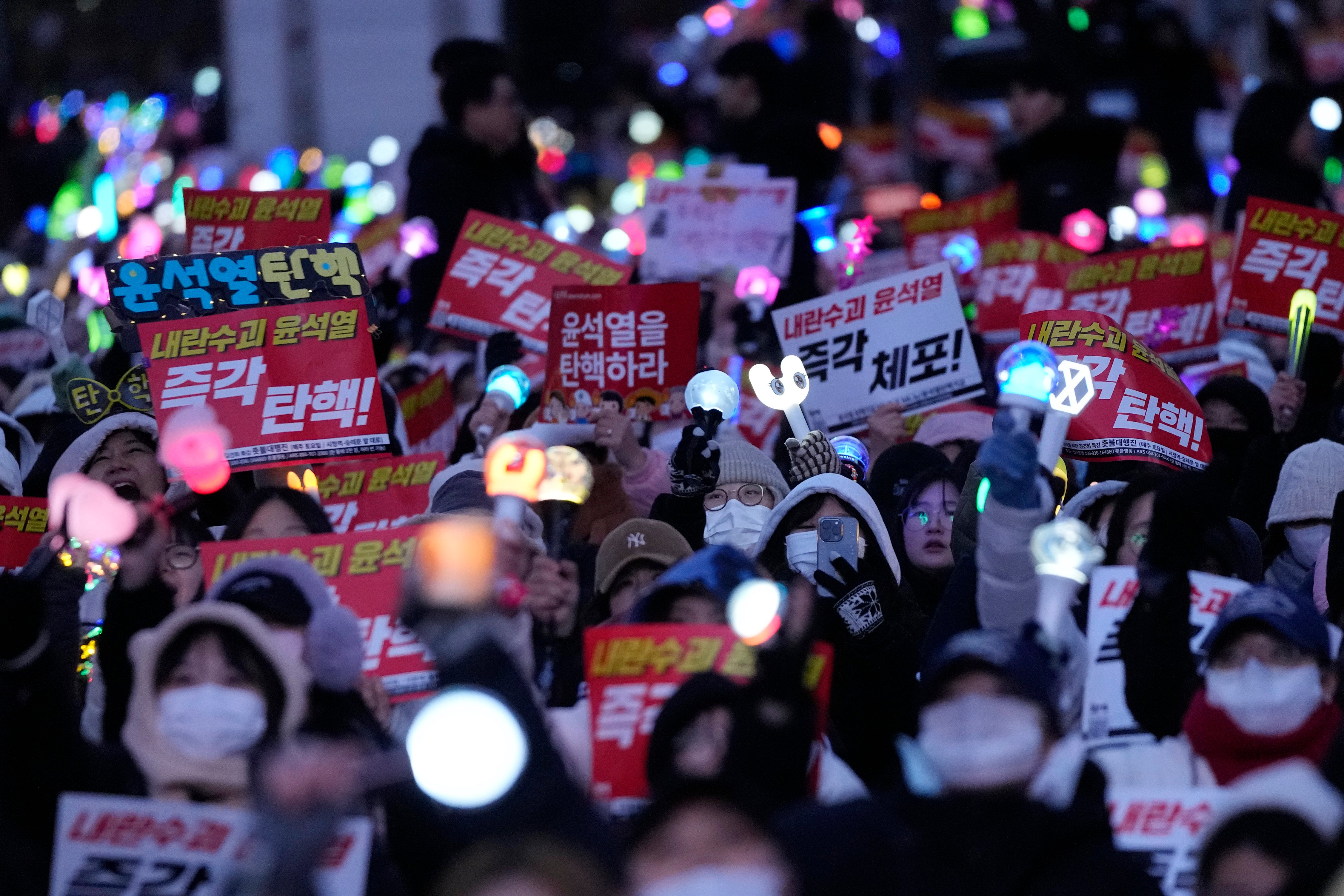
Mr Yoon shocked the nation and the world on Tuesday when he gave the military sweeping emergency powers to root out what he called “anti-state forces” and overcome obstructive political opponents.
He rescinded the order six hours later after parliament defied military and police cordons to vote unanimously against his decree. Some climbed over walls and pushed past soldiers in order to cast their votes.
The move plunged Asia’s fourth-largest economy into its greatest political crisis in decades, challenging South Korea’s reputation as a democratic success story.
Mr Yoon addressed the nation on Saturday morning to apologise for the “anxiety” caused by his attempt to impose martial law.
“I leave it up to my party to take steps to stabilise the political situation in the future, including the issue of my term in office,” he said, promising there would be no second attempt to impose martial law.
Some had expected him to use the brief TV appearance to resign from office but he stopped short of doing so.
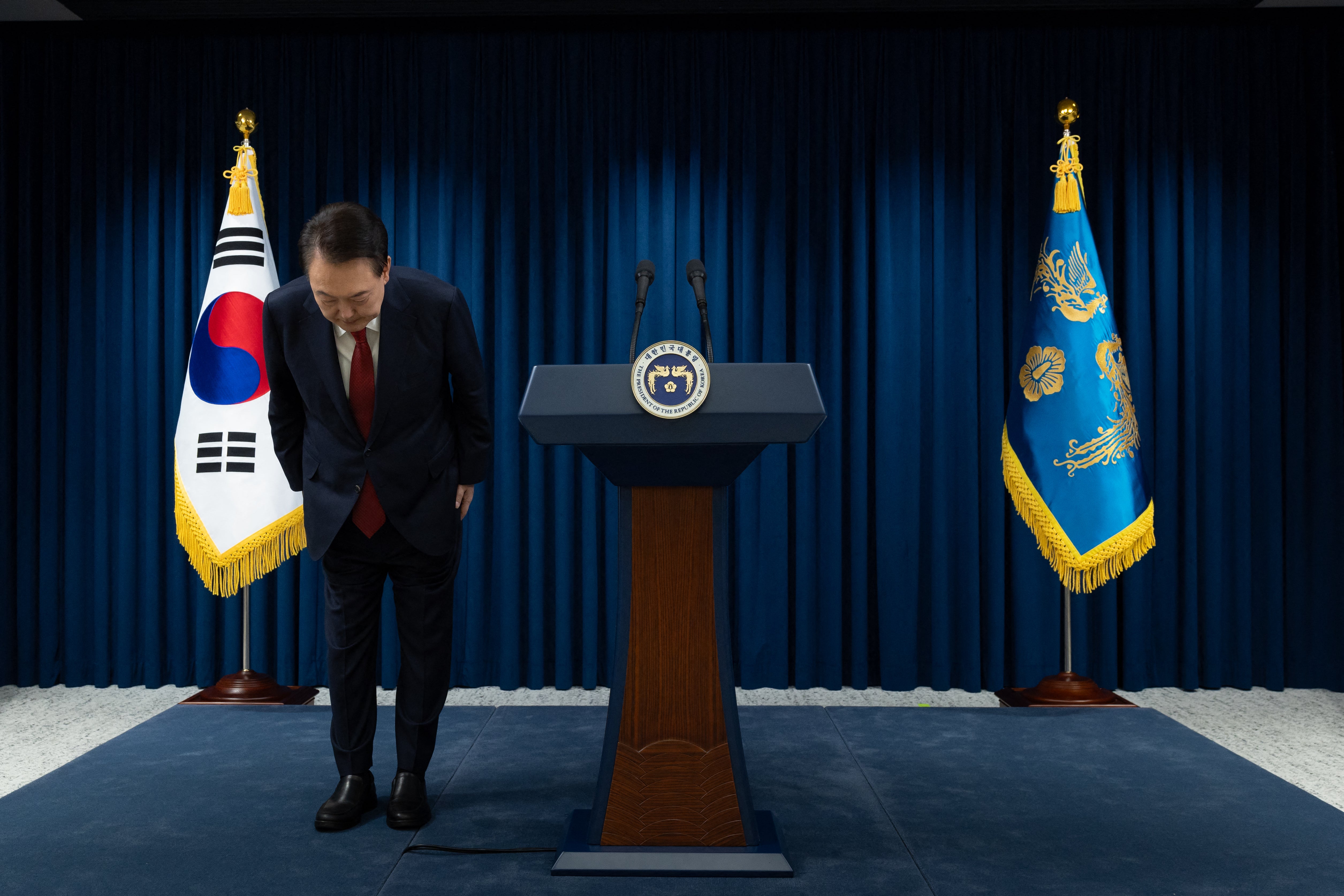
A report said Mr Yoon had been booked on charges of treason, referring to the process that formally names a subject of an investigation.
“Numerous complaints have been submitted, and an investigation is under way in accordance with the process,” said Park Se Hyun, who is leading a special investigation into the martial law declaration.
Three minority opposition parties filed a complaint with the prosecution against Mr Yoon, former defence minister Kim Yong Hyun and martial law commander Park An Su, accusing them of treason.
The crime of leading an insurrection is punishable by death or life imprisonment, with or without prison labour.
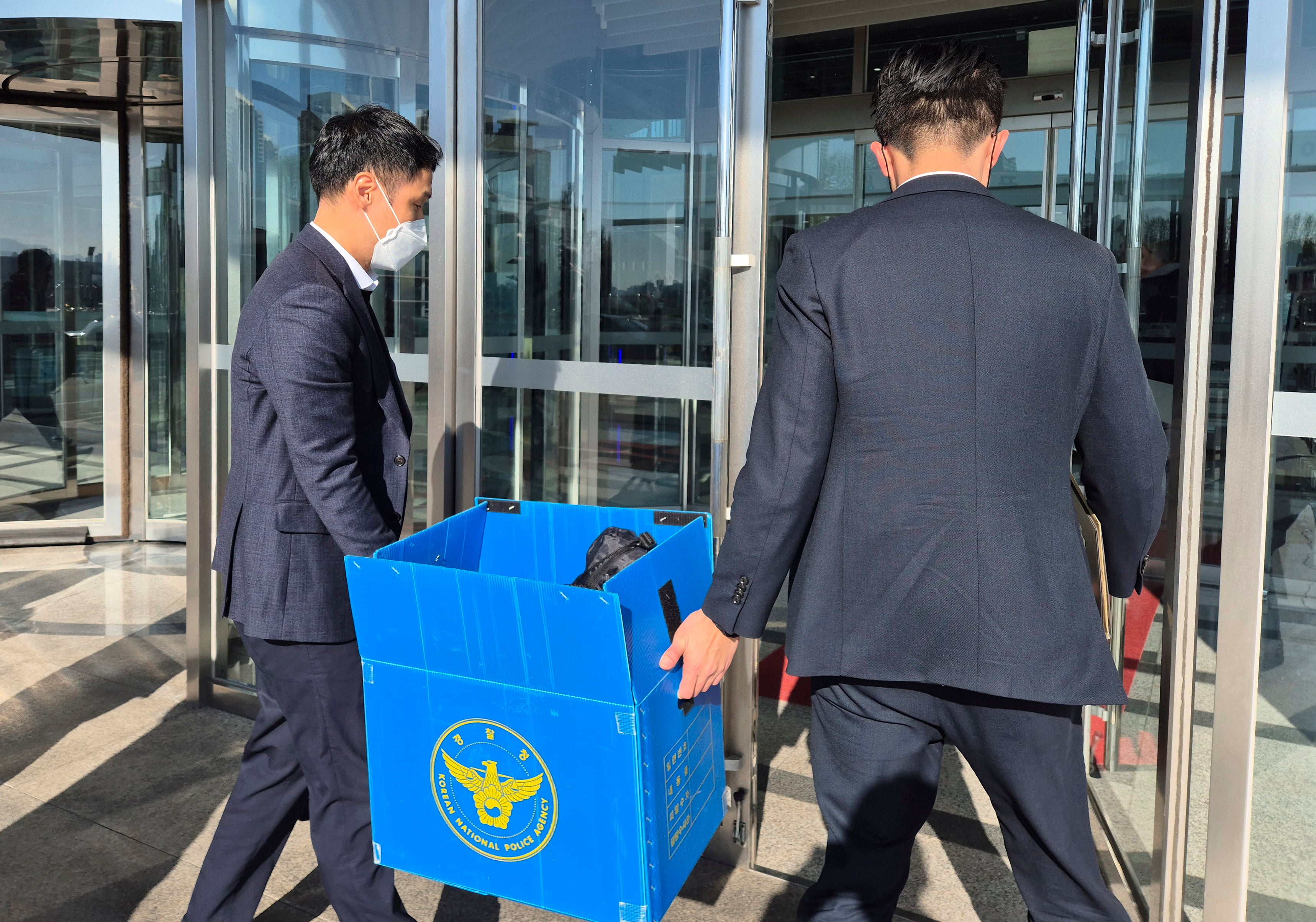
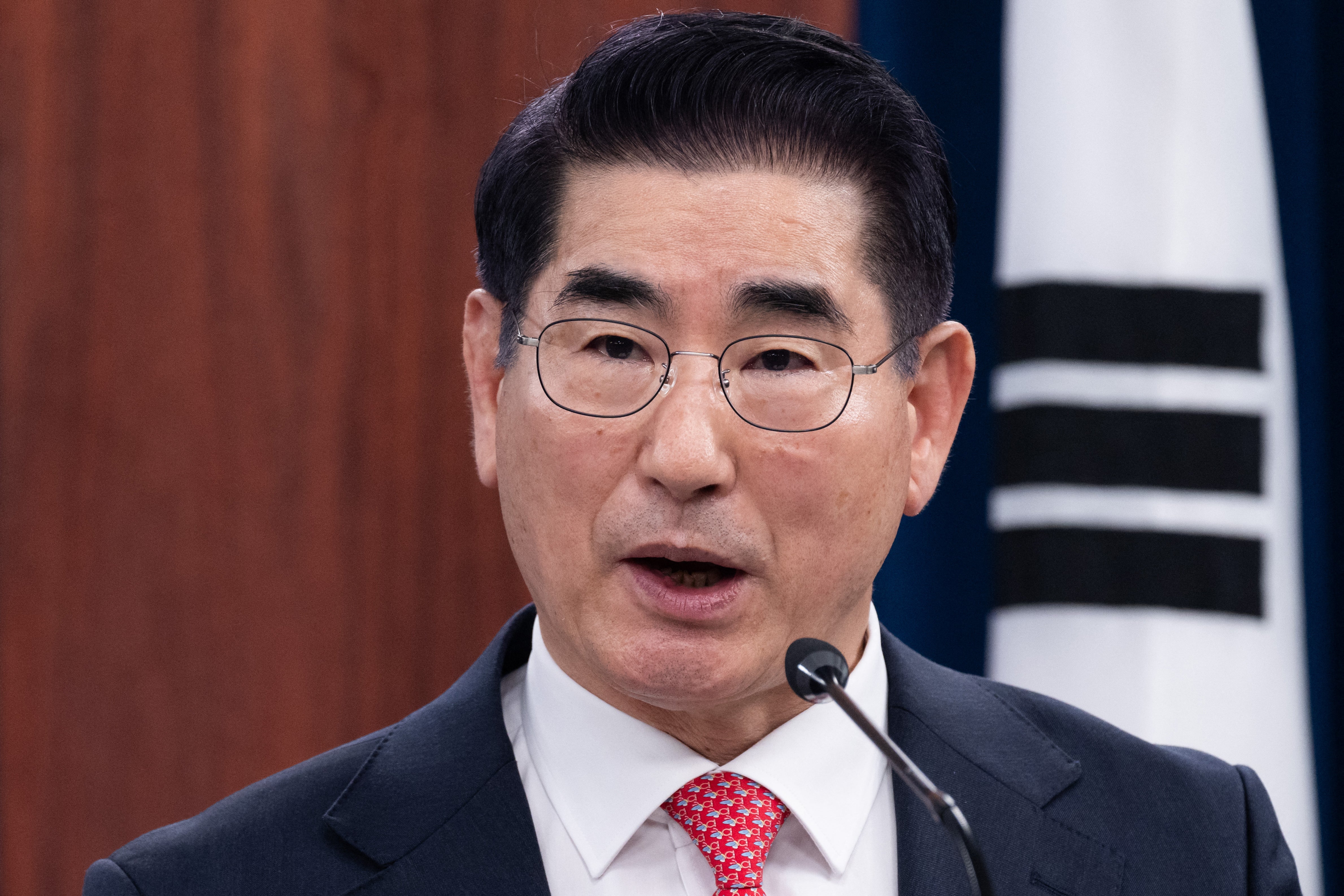
Mr Kim stepped down on Wednesday after the martial law declaration was withdrawn and is seen as a central figure in the debacle, having proposed martial law to the president, according to a senior military official and the impeachment filings.
He was arrested by the prosecution’s special investigative team on Sunday and his mobile phone seized. He was questioned by investigators before his arrest at the Seoul Central District Prosecutors’ Office, where he appeared voluntarily.
Mr Kim’s office was also raided as part of the investigation.
Multiple military leaders, including the acting defence minister, have said they will refuse any orders to impose another round of martial law, in an attempt to reassure the public.
Despite repeated questions from foreign media on Sunday over who is at present the commander in -chief of South Korea’s military – one of the largest in the world and one that operates important combined commands with the United States – there was no response.
Additional reporting by agencies

Join our commenting forum
Join thought-provoking conversations, follow other Independent readers and see their replies
Comments